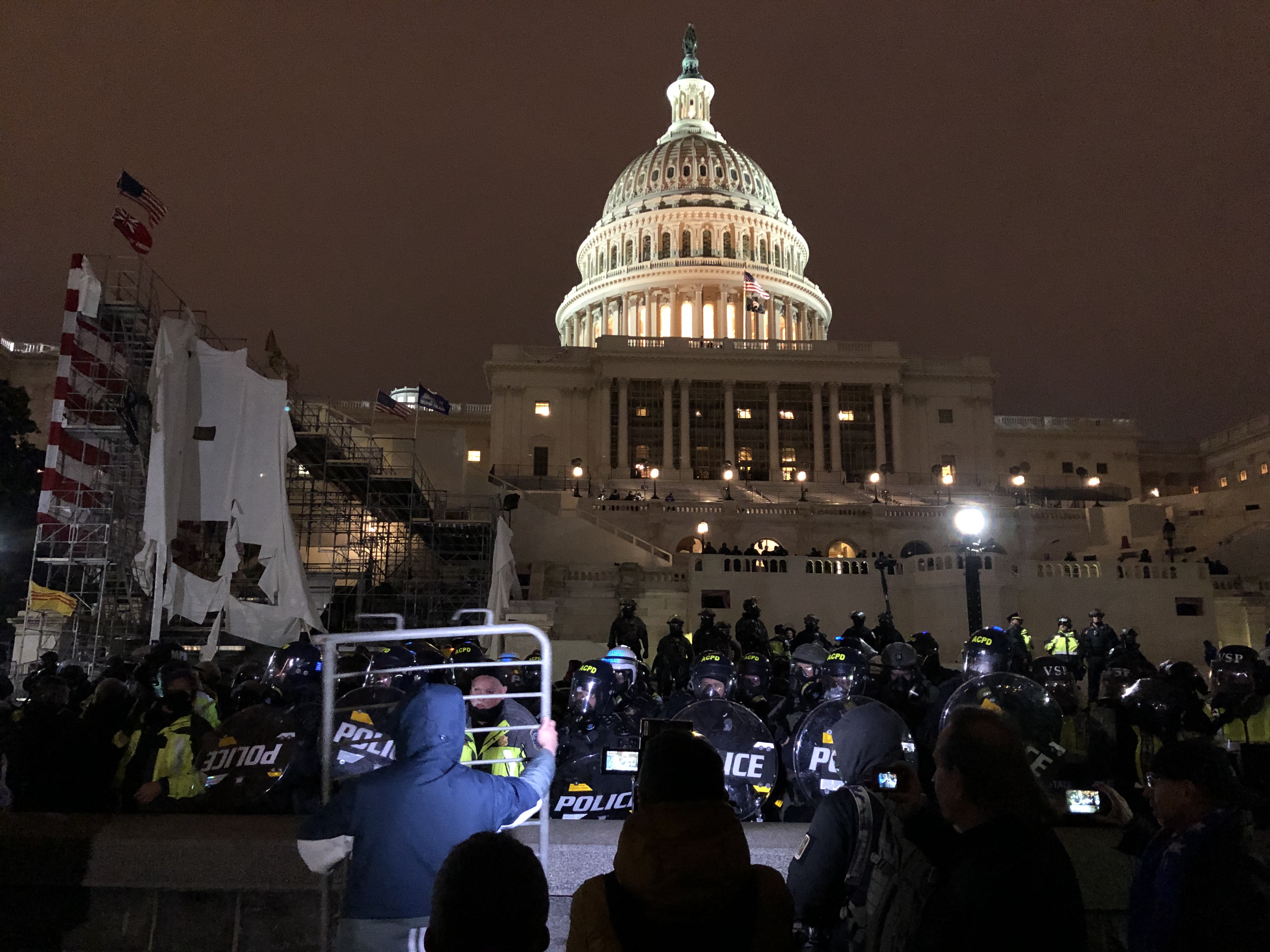Many years ago I heard a theatre legend, one of many such stories, in which a young and cocky actor playing the crocodile in Peter Pan managed to infuriate the stagehands. In crocodile costume, of course, he walked bent over, following tape on the stage, and one night, after a particularly egregious offence against the stage crew, he followed the tape, tick tocking away... straight into the orchestra pit.
The usual message for this story for actors is: don't piss off the stage crew. It also has a message for politicians and pundits: don't blindly follow the tape. In politics, of course, the tape we follow has many names and takes many forms: peer pressure, compromise or the allure of power. More dangerously, the tape we follow takes the shape of a phenomenon visible throughout politics and society: a series of minor propositions, each of which we may not want to agree to, but which at the time seem less painful than a sense of letting the team down, or losing friends, access, and influence. C. S. Lewis described this process in his great essay The Inner Ring.
 |
| Storming the Capitol, by Tyler Merble |
Over the past three months, a large number of American conservatives have followed Donald Trump's lost election over the edge of the stage. Starting at the point the crocodile toppled off the stage, the assault on Congress and its immediate aftermath, we can divide Republicans' reaction to this final cap on the Trump campaign's effort to overturn the election into three rough classes. The first class contains those who have decided to let Donald Trump's pronouncements define their reality: if he says he won by "a lot", they dismiss media reports as "fake", and court decisions as "technicalities". For the second class, some action of Donald Trump's, whether before his election or on the day of the attack on Congress, went too far. They have, often to the loud disappointment of members of the first group, drawn a firm line. This group includes conservatives such as Adam Kinzinger, for whom the assault on the capitol represented the red line, and David Frum, who has always viewed the authoritarian populism of Donald Trump as a threat to American conservatism. The third, and in some ways the most interesting Republicans and conservatives, do not buy into the most florid conspiracy theories. Indeed, they renounce them. But at the same time, they manage to suggest, around the edges, Joe Biden's victory carries a taint of something they do not appear to define precisely or credibly. Consider this post by the blog "neoneocon", in which the author praises Trump's acquittal and disparages his accusers, without actually venturing an opinion on the central issue, namely, whether Trump's supporters had just cause for their assault on Congress. Consider, also, the way Fr. Dwight Longenecker addresses conspiracy theories around the election:
This passage assumes the existence of "irregularities" and "anomalies" in the election, an assertion disputed by experts in the Homeland Security department, members of a team headed by a Trump appointee. It also glosses over a couple of facts: for example, the State of Georgia counted ballots three times, and the Secretary of State did not certify the results until completing a full hand recount of every ballot. Sixty courts examined cases the Trump Campaign's lawyers brought. If an "intent not to investigate" looks like that, I can only assume elections subjected to serious scrutiny would never end.Did this globalist establishment see Donald Trump with his “America First” agenda as the main obstacle to their plans? Again–this is not a secret. For four years they did everything possible to get rid of him. Did they work together to rig an election to make sure he was finally thrown out? Here we must look for balance and ask for facts. The problem is, the establishment seem intent not to investigate the irregularities in the election. Senator Rand Paul and others are calling for the anomalies to be investigated without claiming that they wish to overturn the election of Biden and without extravagant conspiracy claims.
To return to the metaphor, the first group corresponds to an actor who trusts the tape on the stage implicitly, or who wants to go into the pit, adding a drastic coda to their performance. The second group either senses from the beginning the tape leads in a bad direction, or sees, in the end, the lip of the stage, and sheers off. The final group understands the tape may not provide perfect guidance. They will admit it veers too close to the edge, but somehow, to refuse to follow it, to stand up and walk off the stage; that they cannot find it in themselves to do. They appear to want to find a way to accept the guidance of the tape but not to fall into the pit.
But this case, as in many cases of moral and political choice, allows no middle way. The tape leads over the edge of the stage and into the pit. The actor either follows it and falls, or they don't. For a political conservative in the United States, paramount values include democracy and the rule of law. The entire edifice of American society, from its politics of ordered liberty to its economy of consent and contract, rests on these principles. The assault on Congress, as it sat to ratify the election, violated both of these principles. Many people have written about the way an attempt to overturn an election by force contradicts democratic principles, somewhat fewer about its subversion of the rule of law. The Trump Campaign filed sixty court cases seeking to undo the vote. They lost each one, including a respectable number of cases argued in front of conservative Republican judges, some of them appointed by Donald Trump himself. Attacking the Capitol meant choosing to resort to force in order to undo the sixty court judgements in these cases, to reject out of hand the possibility the courts may have ruled with integrity, based on facts or wisdom Trump's supporters may not possess. Even more fundamentally, it rejects the social contract required by the rule of law: the commitment of all parties to abide by the court's decision when they deeply disagree with it, even when a decision goes against their most fundamental interests. C. S. Lewis described courage as all virtues at the testing point, meaning the point of highest reality, and the same principle applies to the rule of law. A society in which people whom a judicial decision angers can use violence to overturn it does not truly live under the rule of law.Republicans who back Donald Trump unequivocally have made their choice: he, or his policies, or what he represents, matter more to them than democracy or the rule of law. They have abandoned American political conservatism, any effort or even pretense at conserving the American polity and its principles, in favour of something else: the attractions of a "strong man", radical white supremacy, or some other idea. They hold whatever motivates them dearer than government under law, of , by, and for the people. Republicans and others who have rejected Trump have just as clearly turned away from what he represents and rejected his leadership so as to keep, for themselves and their children, the ordered liberty the United States Constitution, in its best expression, strives toward. The people in the middle, the ones who do not condone riots but do not consider Joe Biden "really" won, the ones who see, and say, the evidence supports no grand conspiracy theories of a stolen election but minimize the reality of the assault on the capitol and cheer Mr. Trump's acquittal; these people, in a sense, represent the most devoted of followers. They see where the tape goes, and they grasp, in some way, where Mr. Trump's leadership is taking their country; they do not want to go there, and yet they will not turn away.
It is those people, above all, whom we need to remind not all choices have a middle way. Not every decision allows for compromise. You either back democracy and the rule of law, or you do not. Whether you enthusiastically wish to take a swan dive off the stage for art, or whether you cannot bring yourself to leave the tape guiding you to the edge, you will fall just as hard.






No comments:
Post a Comment